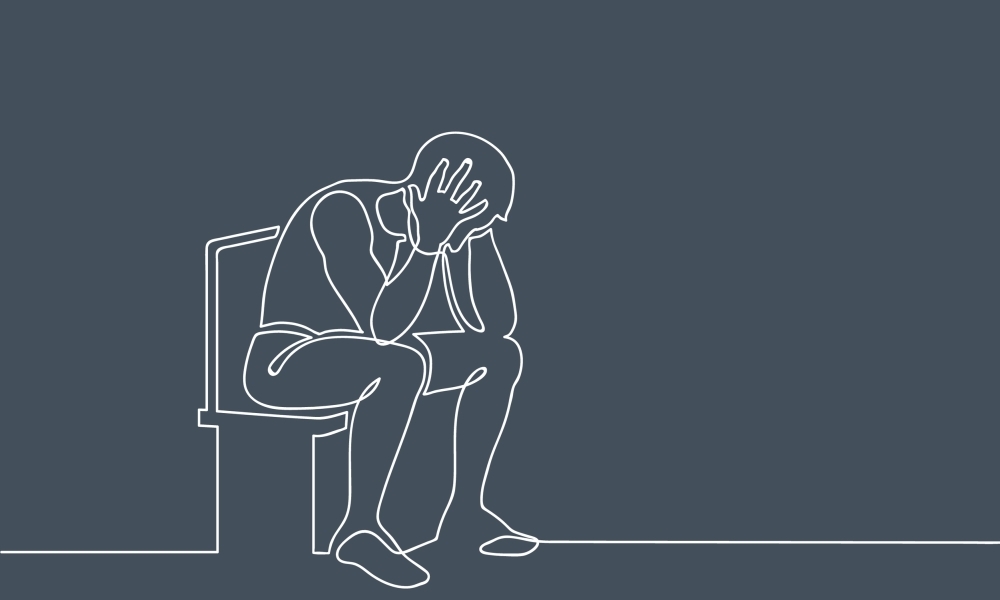‘We certainly don't think that grief goes in a linear form, and for each person grief is very unique’. In this article, Amanda Trotter from Griefline outlines the different types of grief and loss, coping strategies, and how experiencing grief can impact our overall wellbeing.
Grief caused by bereavement is something we will all encounter at some point in our lives, but there are also many other different types of grief and loss that we can experience – whether it’s the loss of a pet, having a sick or elderly relative, or grief caused by natural disasters.
Amanda Trotter is the Community and Partnerships Coordinator at Griefline, a national organisation that supports Australians experiencing grief after loss. ‘We certainly don't think that grief goes in a linear form and for each person grief is very unique,’ she tells Wellbeing by Teacher. ‘And that's one of the most important things that people need to know; that everybody's grief response is unique to them.
‘We need to understand that grief is a natural response to loss, it's an adaptive response to loss. So even though it feels bad, it's actually our body’s way of resolving this issue for us to some extent (never fully).’
Types of loss
Grief can be experienced in response to two main types of loss, Trotter says: bereavement and living losses.
Bereavement occurs after the death of someone special to you, for example, the loss of a loved one, but also the loss of a colleague, a pet, or a public figure you idolised. A living loss is different, and can take many forms, such as the loss of a job, the loss of a home, or the loss of your identity.
‘People that, for example, retire; they may lose their identity and there's a grief associated with that. People that are carers and they lose that loved one that they've been caring for, then there's that loss of identity as a carer,’ Trotter explains.
‘Then there's also things like loss of the assumptive world – so, in natural disasters, people that have lost everything … all of their hopes and dreams that they had in place can be just completely ripped away. That means that therefore they've lost that assumptive world and it really rocks their foundations. So, these are some of the living losses and the list goes on and on and on.’
Types of grief
So, it’s clear that grief caused by bereavement is not the only type of grief we can experience. There are four main types of grief that can be associated with varying types of loss, and they are:
- Anticipatory grief, which is characterised by feelings of anxiety and dread in response to an anticipated loss of a person or pet. This may be an elderly relative or pet, someone in palliative care, or a marriage that may be coming to an end.
- Ambiguous grief, which is experienced when a person is physically present in your life but has changed from who they were once before – for example, a person with Alzheimer’s, battling an addiction, experiencing mental health issues, or acquired brain injuries.
- Disenfranchised grief is a type of grief that people feel they’re unable to express because they are fearful of judgement or they feel their grief may not be acknowledged by others or society in general (for example, grief from a pregnancy termination or placing a child for adoption). Often a person’s grief symptoms will be amplified in this case due to the lack of public mourning.
- Prolonged grief disorder (formerly known as complicated or complex grief) impacts around 10 per cent of grieving people and is recognised when the symptoms of grief are still debilitating a person’s day-to-day life and physical health for more than 12 months after a loss.
The impacts of grief on our health and wellbeing
Grief can impact us socially, psychologically and physically. Socially, we may isolate ourselves, become withdrawn, obsess over what we have lost, and question our beliefs and spirituality. Psychologically, Trotter says it’s common to feel an ebb and flow of emotions when grieving. It’s also common to feel confused, a sense of helplessness, despair, guilt, shame, denial, and depression.
Physically, it’s common to experience sleeplessness, a racing heart, shortness of breath, nausea, tiredness, a change in your appetite, and a loss of concentration. People can also feel physical pain in their body. ‘I'm on the [Griefline online] forums and a lot of people talk about nausea and they talk about heartache. They talk about their heart actually aching,’ Trotter shares.
Although society may view it differently, it’s normal to be affected by grief for 12 months after experiencing loss, which means your social, psychological and physical health may be negatively impacted for quite some time. Beyond this timeframe, Trotter says it’s just as common for feelings to come and go forever, so feeling the symptoms of grief at times five or 10 years beyond a loss is normal.
Supporting yourself while grieving
One helpful resource to turn to while grieving is the EAST Toolkit, which stands for Eating, Activities, Sleep and Time. This toolkit encourages you to eat well, continue activities you would normally participate in (like exercise), aim to get a good night’s sleep, and make time for social activities.
For those in Australia, Griefline also has a free phone helpline, online forums, support groups and a care to call program.
‘Whilst most of us never actually stop grieving – there will always be an element of grief there – what we aim to do is to integrate the grief into our lives. And hopefully to grow around grief. That's sort of the ideal,’ Trotter says.


